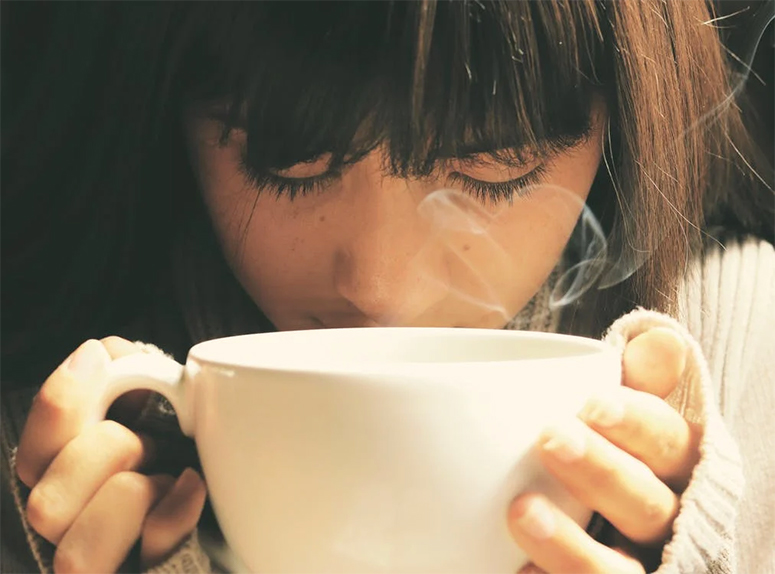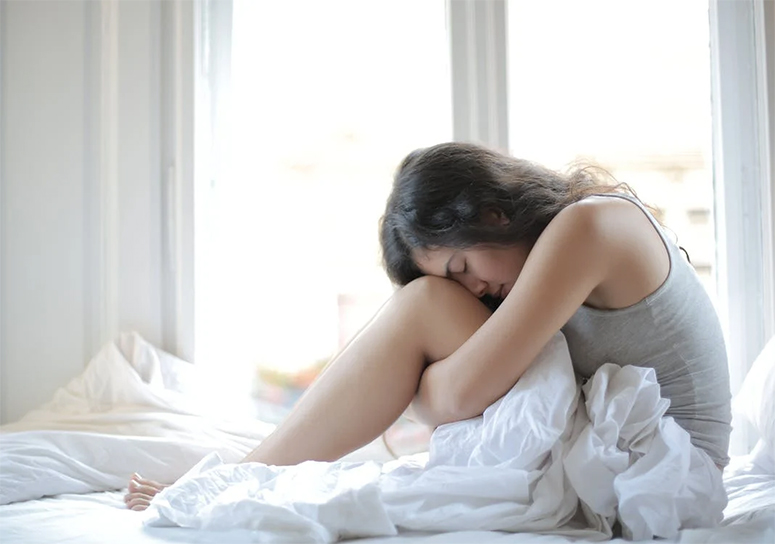Coffee, tea or me? Why I quit coffee
I wake up cloudy and exhausted. Before I even step out of bed the day already feels off. I chug two cups of coffee hoping to wake up. Trying to manage the kids, work, admin — the smallest of hiccups feel overwhelming and insurmountable. I’m grouchy and agitated, bark at everyone, my heart is racing and I can’t focus.
By 2:30 p.m. I am wiped out and wired at the same time. A migraine sets in and I’m not certain I’ll be able to manage the rest of the day, but I down another coffee and power through.
When the evening comes along, my energy and patience is spent. I’m anxious and stressed and can’t wait for bed. Finally, when I turn out the lights — I’m wide awake. Sleep is elusive and I know the next day may be just as bad.

In July of 2021, I quit coffee. Yes, as hard as it is to believe, I stopped drinking that cuppa joe every day. I don’t regret it and I’ve never felt better. It started with a diagnosis of PMDD — Pre-Menstrual Dysmorphic Disorder — which is kind of like your regular PMS but amplified to 1,000 percent. Every time, like clockwork, around one week before my red days, I would become a classic case of Dr. Jekyll and Mr. Hyde. I couldn’t control my frustrations, I had no patience and I pretty much had to wear a sign that read “Beware: Dangerous Creature, may bite your head off.”
Many options were prescribed to me to manage these awful mood swings, including prescriptive anti-anxiety pills, but I was determined to find a holistic and more sustainable answer. In my research, I discovered that coffee — notably the caffeine in coffee — can enhance feelings of stress and agitation.
I started by switching out my coffee in the mornings before my period came along and replacing it with cacao. The effects were immediate and from there, it was easy to kick that coffee habit by prolonging the days without it. Now I still enjoy a nice espresso or latte maybe two to three times a month, but more as a treat and, almost always, decaf.

“For most of us, to be caffeinated to one degree or another has simply become baseline human consciousness,” shares food activist Michael Pollan in a recent article in The Guardian. He goes on to explain that “90 percent of humans ingest caffeine regularly, making it the most widely used psychoactive drug in the world.”
Since it is also hidden in other beverages such as soft drinks, energy drinks and the like, it is not even thought of as a drug. How can that Venti Caramel Frappuccino be a drug? It seems so innocuous that we even unthinkingly serve this to children. Pollan expounds his thoughts and declares: “It’s so pervasive that it’s easy to overlook the fact that to be caffeinated is not baseline consciousness but, in fact, an altered state. It just happens to be a state that virtually all of us share, rendering it invisible.”
Many options were prescribed to me to manage these awful mood swings, but I was determined to find a holistic and more sustainable answer.
This article changed my perception of coffee and caffeine in general. Most people live in a constantly caffeinated state and no longer know what it’s like to be without it. We feel like we need it in the morning to wake up and get going and that’s because we do. This is a manifestation of the dependence it creates from the day before, an expression of withdrawal symptoms in its simplest form.

we also shouldn’t continue to live in a caffeinated one.
Within 24 hours you can feel brain fog, a lack of alertness, physical fatigue, irritability, difficulty in concentrating, a throbbing headache, and even nausea. As early as 1994, scientists had established the addictive nature of caffeine and it’s been recently recognized that caffeine withdrawal is a proper mental disorder. You read that right. Your “Don’t talk to me without coffee” state is a real mental disorder.
Being in an overcaffeinated state or having a caffeine dependence can contribute to elevating our levels of stress and anxiety, inhibits our ability to have a restful sleep and overall promotes a steady decline in our entire physical, mental, and even emotional wellness.
I discovered that coffee — notably the caffeine in coffee — can enhance feelings of stress and agitation.
With mental health issues being put more and more in the spotlight lately, it’s a wonder why we don’t ban coffee altogether considering its contribution to the collective grouchiness of humanity. How can we? It smells and tastes divine.
Personally, I find that the best way to treat caffeine is how one would treat alcohol. We wouldn’t start our day with a glass of wine (unless you’re enjoying a mimosa on a Sunday brunch, which is perfectly acceptable!) or carrying on boozing all day (this is acceptable on your first day of your summer holiday, but otherwise you may need to seek help). We enjoy our cocktails and wine sparingly. Relish them with pleasure and choose wisely when to indulge. Much like we shouldn’t live life in an alcoholic state, we also shouldn’t continue to live in a caffeinated one.

Read labels and watch out for hidden caffeine in iced teas, soft drinks, some fitness juices and even fitness supplements. “What about tea?” you might ask. Generally, a cup of brewed coffee has 95 mg of caffeine, while a cup of black tea has 47 mg. The type of tea and the brewing time matters to the amount of caffeine it contains. Tea also has other benefits that coffee doesn’t, such as the presence of L-Theanine, which not only is a powerful antioxidant, it also increases your brain’s alpha waves that allow you to have a sense of calm, balancing the overstimulating effects of caffeine. Perhaps this is the reason why British news outlets seems a lot more reserved and composed compared to the more sensational and blockbuster American news outlets? Maybe it’s something in the water.
At the end of the day, the most empowering stimulant is information. With knowledge comes the power to make informed decisions. And to answer a cheeky question from the ’60s, “Coffee, tea, or me?” I choose me, as should you. Do what makes you truly feel good — and not just for a brief moment but in the long run.


